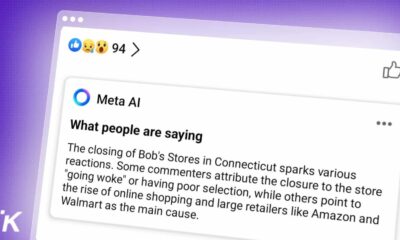Facebook spills the beans on the types of posts that get demoted in the News Feed
Facebook says it looks at nearly 30 different categories when demoting posts.

Just a heads up, if you buy something through our links, we may get a small share of the sale. It’s one of the ways we keep the lights on here. Click here for more.
It looks like Facebook might finally be on board with becoming more transparent with its user base. Earlier this week, the platform shed some light on how and why it suppresses some posts that would show up on your News feed.
Facebook recently published its Content Distribution Guidelines which sheds some light on the types of posts that the platform hides from other users. The guidelines contain a list of nearly 30 different types of posts that the platform chooses to demote on users’ News feeds.
The guidelines include categories like ad farms and clickbait links as a result of direct user feedback. Apparently, the platform listens to its users and demotes posts based on what we don’t want to see. There are also examples like inauthentic sharing and unoriginal news articles that are demoted in an attempt to promote higher quality content.
Examples of content that Facebook demotes
Here are some of the main examples of types of content Facebook says it actively tries to demote:
- Ad Farms
- Clickbait Links
- Comments that Are Likely to Be Reported or Hidden
- Engagement Bait
- Links to Suspected Cloaking Domains
- Links to Websites Requesting Unnecessary User Data
The platform also has several demotion guidelines that help promote user safety and security. Posts from regular policy violators can be suppressed. The platform can also suppress content that is close to breaking its policies but may be toeing the line of what’s acceptable.
Though this is a big step towards Facebook becoming a more transparent platform, there’s still a lot of the decision-making process about demoting posts that we don’t know. We don’t have much of an idea of how much demotion reduces a post’s reach or how severely the platform responds to each individual guideline.
Still, it’s nice to see Facebook be more transparent about its processes and guidelines on the platform, especially after the company has been in such hot water over the last few weeks.
Have any thoughts on this? Let us know down below in the comments or carry the discussion over to our Twitter or Facebook.
Editors’ Recommendations:
- Facebook’s special treatment of celebrities is under review by the Oversight Board
- The head of Instagram says death is necessary for social media to succeed
- Snapchat has awesome new filters and stickers that help teach people American Sign Language
- Kids in China will soon be extremely limited on how much time they can spend on TikTok
































